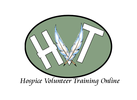The Wednesday Letter
I found it again today. That moment of contentment when you know that all is right with the world and you are doing exactly what you are destined to do at the moment. The sadness of the day, the tension of certain parts of it, were enough to make someone ask, “how do you work in hospice?”.
Years ago I would have looked at this day and prevented the experience if at all possible. Today I cannot think of any career that I would rather pursue.
A prospective hospice patient asked me to let him wait a couple of days before he gets his feeding tube. His plea reminded my of my child asking me to not make him take his medicine when he was very young. I thought my heart would break. I told him the decision was not up to me. He said he would try to eat more and then said he had already been eating more.
I looked at him, barely a trace of a man due to the low weight. He had not actually spoken to me but wrote each word on a clipboard full of paper. His throat cancer was causing a lot of hindrances besides the physical pain. In a moment of a silent, passive tantrum, he wrote, “I am going to die anyway”.
I assured him I would speak to his oncologist and relay his wishes. Like a rubber duck at the carnival I went back and forth not only with the doctor's assistant and the patient but also with my emotions. There was no prize printed on me, just the activity of running back and forth with no indication of a change in direction. It was the patient's right to refuse any treatment. The medical advise was that the feeding tube would be a comfort measure and a way to provide enough nourishment to prevent the burning, painful hunger that would ensue. I am not sure if I had the right to act as the patient advocate or if I had the intelligence to act as the medical professional's voice. I just wanted to help and didn't know how.
I explained to the man how his doctor wanted him to be comfortable. He nodded in understanding. I at least was able to assure him that the other procedures that had been suggested could be decided upon later. Other suggestion included pulling his teeth, surgery to his neck and back, etc. As the patient said, “I am going to die anyway”.
I was caught right in the middle of the tug of war that is played at the end. I had to step back and think whether the plans were beneficial or causing suffering. Why is death not a clear cut path of being here and then not being here. There are always complications.
Then I remembered.
Nothing in hospice has to be permanent. He could start or stop whatever he wanted to. I actually got stuck on a decision when the whole theory behind comfort care is to know there is no permanent decision. A thought today can be an activity tomorrow or a long forgotten plan by next week. That's why so many people do not choose hospice – the permanence of non-doing; the perception that nothing more will be done.
One other lesson occurred when I found myself being judgmental. I said, “I bet you're ready to get out of here, aren't you?” referring to the ICU room where daylight and dark are places on the other side of a shaded window. The man just shrugged and I was amazed. How could I assume he wanted to go home? Here he had people who cared for him. At home he would be basically alone.
On the way home from the consultation, I was entertained by intimidating mountains and humble valleys. Birds flying in a “ring around the roses” fashion while they hovered over my path. The late afternoon sky looked like a painting of perfection and I was feeling totally gratified for the experience I had minutes earlier.
I know why I do the type work I do. To help people find their way and sometimes to remind me that I will always have lessons to learn.
On a clipboard in a hospital room tonight, a man wrote a note to me that said, “Thank you. You did help me.”
Perfect contentment.





